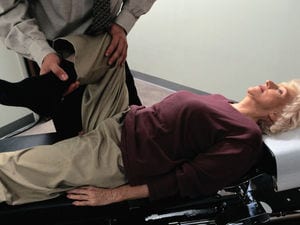
MONDAY, Feb. 5, 2018 (HealthDay News) — Menopause may speed physical decline in women with rheumatoid arthritis (RA), a new study suggests.
While rheumatoid arthritis rates in women are three times higher than in men, and women with RA have more severe physical decline and disability, sex-based differences in RA are poorly understood, the researchers said.
Rheumatoid arthritis is an autoimmune disorder that causes inflammation and pain in the joints.
Other research has shown that rheumatoid arthritis in women is influenced by childbirth and other reproductive and hormonal changes. For example, the study authors pointed out that women with early menopause are more likely to develop RA than those with normal or late menopause.
“Further study is needed as to why women with rheumatoid arthritis are suffering a greater decline in function after menopause,” said study lead author Elizabeth Mollard. She’s an assistant professor of nursing at the University of Nebraska College of Nursing in Lincoln.
To learn more, Mollard and her colleagues looked at nearly 8,200 women with rheumatoid arthritis. Those women whose periods had not yet stopped had slower physical decline than those who were postmenopausal, the study found.
While only an association was seen, the results suggest menopause has a significant impact on the degree and rate of physical decline in women with rheumatoid arthritis and is linked to worsening disease.
The study was published Jan. 29 in the journal Rheumatology.
“Not only is this decline causing suffering for women, it is costly to both individuals and the health care system as a whole,” Mollard said in a journal news release.
“Research is specifically needed on the mechanism connecting these variables with the eventual goal of identifying interventions that can maintain or improve function in postmenopausal women with rheumatoid arthritis,” she said.
More information
The American Academy of Family Physicians has more on rheumatoid arthritis.
